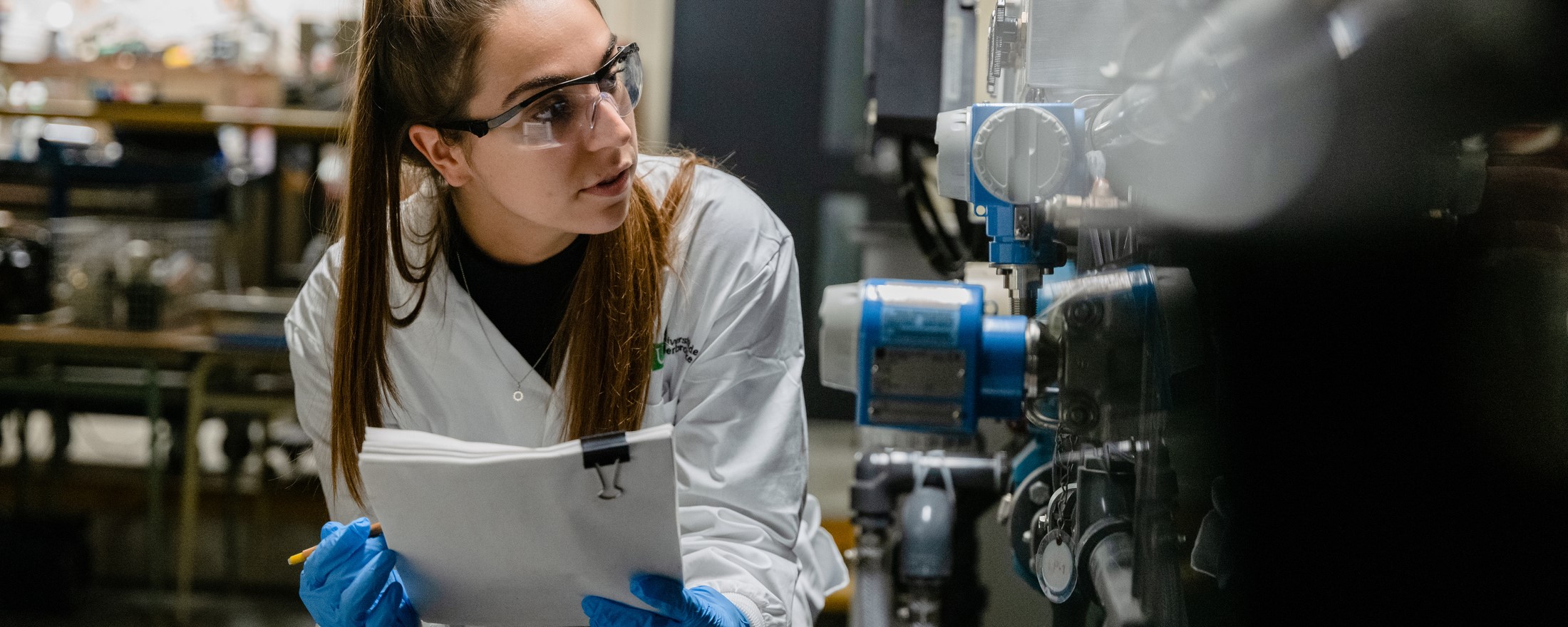Wafer-scale integration of 2D materials for optoelectronic applications
Overview
- RESEARCH DIRECTION
- Mathieu Massicotte, Professeur - Department of Electrical and Computer Engineering
- ADMINISTRATIVE UNIT(S)
-
Faculté de génie
Département de génie électrique et de génie informatique
Institut interdisciplinaire d'innovation technologique (3IT)
- LEVEL(S)
-
2e cycle
3e cycle
Stage postdoctoral - LOCATION(S)
-
3IT - Institut interdisciplinaire d'innovation technologique
Campus de Sherbrooke
Project Description
Context - Two-dimensional (2D) materials, such as graphene, are a new class of one-atom-thick crystals with spectacular optical and electrical properties. The vast number of studies on these materials and the high performance of device demonstrators clearly demonstrate their potential for several applications, in particular in the field of photonics and electronics. One of the main hurdles to the development of technologies based on 2D materials is the lack of device manufacturing processes at large scale. The development of reliable production processes would unleash the potential of 2D materials for a whole range of technologies. Integrating 2D materials into semiconductor production lines is a promising avenue as it enables the use of already well-established manufacturing processes, such as lithography and etching. However, many challenges remain, especially regarding the transfer of 2D materials, their encapsulation with dielectric layers and their electrical contacting. Research project - We are looking for a well-qualified and highly motivated student to help us tackle these challenges and develop new fabrication processes to integrate 2D materials into high-performance devices at the wafer-scale. Building on the expertise and facilities available at Université de Sherbrooke, one of the main goals of the PhD project is to develop a scalable and industry-compatible process to perform the damage-free transfer of 2D materials onto various substrates. The PhD project also aims to improve the micro/nanofabrication steps (lithography, etching, encapsulating, etc.) required to integrate the transferred 2D material into high-performance optoelectronic devices. In collaboration with academic and industrial partners, the resulting devices will be characterized and put to use in various proof-of-concept technologies, including quantum simulators and photonic integrated circuits. Research environment - The PhD student will be supervised by Prof. Mathieu Massicotte from the Department of Electrical and Computer Engineering of Université de Sherbrooke, and principal investigator of the Nano-Opto-Electro group (www.optonanoelectro.com). The work will be done mainly at the Interdisciplinary Institute for Technological Innovation (3IT) and the Institut Quantique (IQ) at the Université de Sherbrooke. 3IT is a unique institute in Canada, specializing in the research and development of innovative technologies for energy, electronics, robotics and health. It holds a state-of-the art cleanroom with a complete micro-nanofabrication infrastructure. IQ is a new research institute equipped with cutting-edge research tools, that brings together world-renowned experts in quantum science and engineering. The PhD student will thus benefit from a highly interdisciplinary research environment that combines students, technicians and professors working together to develop the technologies of the future. Candidate profile: • Bachelor’s or Master’s degree in engineering or physics • Experience and skills in laboratory work. • Background knowledge in material science and characterization, micro/nanofabrication and/or semiconductor physics. • Excellent adaptability, autonomy, teamwork and problem solving skills. • Assets: knowledge or experience in cleanroom environment, 2D materials, electrical and optoelectronic measurements. To apply please send the following documents to mathieu.massicotte@usherbrooke.ca • Curriculum Vitae. • Transcript (Bachelor's and/or Master's degree). • Cover letter emphasizing the relevance of your experience with the proposed subject. • Letters of recommendation and/or contact details of 2 references. Start date: The position is available immediately. Applications will be reviewed until the position is filled. This project can accommodate one or more students in the following programs: - Postdoctoral fellowship - Doctoral thesis - Research-type master's thesis
Discipline(s) by sector
Sciences naturelles et génie
Génie électrique et génie électronique
Funding offered
Yes
The last update was on 12 March 2024. The University reserves the right to modify its projects without notice.
